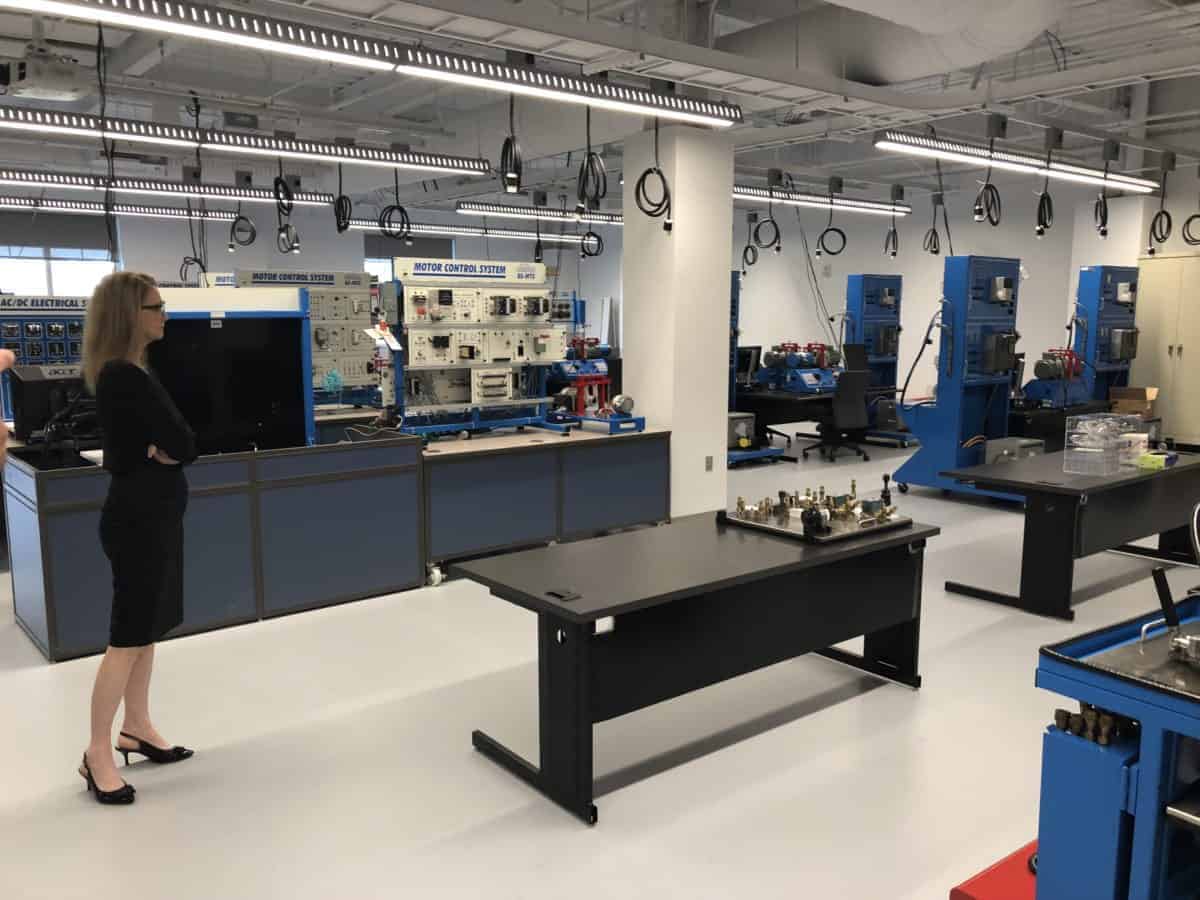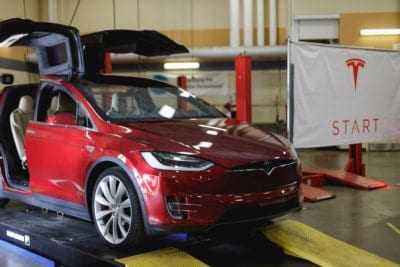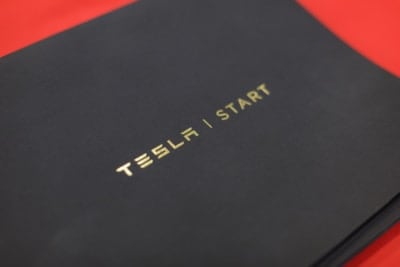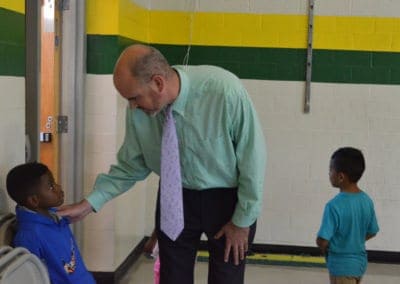There’s a loud hum coming from the brightly lit classroom on the ground floor of Central Piedmont Community College’s Advanced Technology Center. Inside, students work at large, manual machines that shape metal. Across the room, computer numeric control (CNC) machines wait at the ready. The equipment looks pristine; the floors don’t even have scuff marks on them yet.
“It looks different than a typical classroom building,” says Mike Hogan, the college’s associate dean of STEM education.
Indeed, the ground floor of this new facility—in the shadow of Charlotte’s skyscrapers—looks like the manufacturing floor at a high-tech company. The $25 million, 79,000-square-foot building opened this month, and during design and construction, CPCC took its architects to advanced manufacturers such as Siemens and Blum.
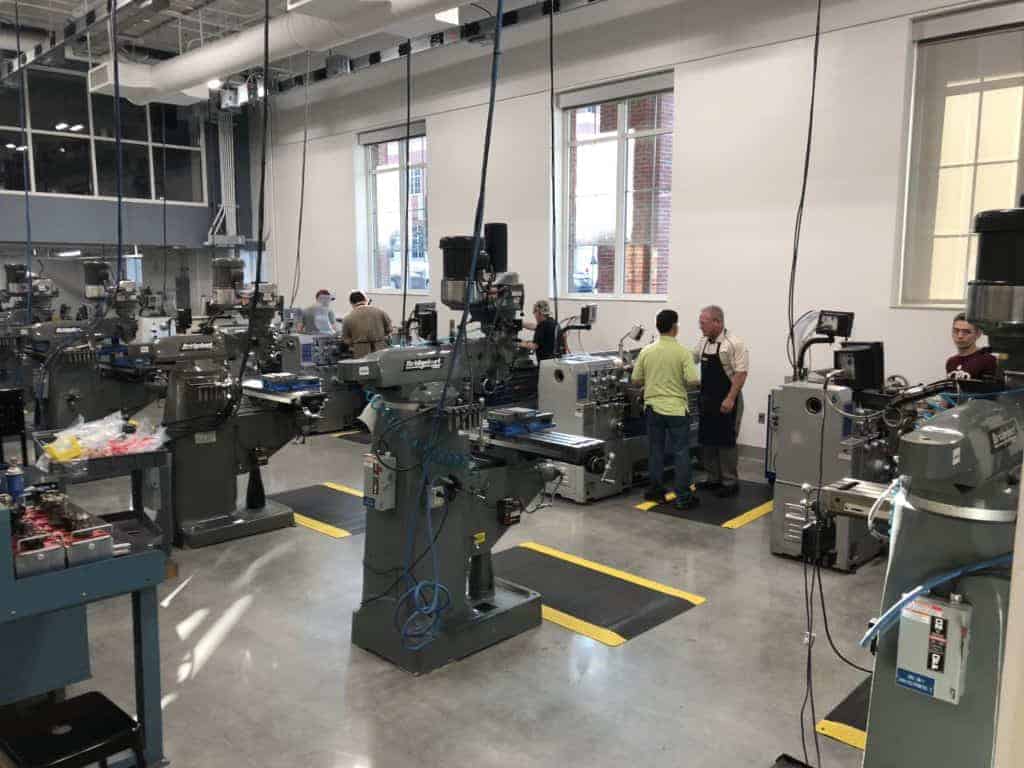
“We said, ‘This is what we want,’” Hogan recalls. The idea was to create a space that mimics real life in advanced manufacturing facilities—and that pushes back against conventional ideas of manufacturing. “We really wanted to work on that perception. It’s not the Ds: dark, dangerous, and dirty.”
CPCC is the state’s largest community college, and it plays a significant role in workforce readiness in the Charlotte area and beyond.
“Central Piedmont is such a big hub of economic development,” says Kandi Deitemeyer, the college president. She and her staff are even more focused on that mission given the findings of an oft-cited study that ranked Charlotte last among 50 U.S. cities in terms of economic mobility.
“We have to move people toward opportunity, and the college can obviously make a difference in that,” Deitemeyer says. “This facility is one piece of that big puzzle.”
Students who earn degrees from CPCC’s advanced manufacturing program typically start out earning $45,000—but annual earnings can soar into the six figures. “These students are highly sought after,” Hogan says. Many are paid apprentices for local advanced manufacturing companies that pick up the tab for tuition while also paying the students to work in their facilities.
Even though classes are under way, equipment is still arriving; the building is that new.
There are training panels where students learn to program the CNC machines. “Without the smoke or damage to the equipment, we can figure out if they know what they’re doing,” Hogan explains. And there are devices that can measure the size of a part down to two microns—less than the width of a human hair.
“In a lot of these careers, that precision really matters,” he says. Students have a bevy of pathways available to them, from motorsports to health care to aerospace. “When I get on a plane I want to know that part is the right size.”
The building itself, which was funded by Mecklenburg County taxpayers through a bond referendum supporting CPCC capital projects, is more than a space for classes. It is a symbol of future opportunity for students.
“They come here and realize that it’s high tech, high touch, and that technology really drives the industry,” Deitemeyer says. “And then it begins to become a game-changer for them.”
Tesla comes to town
It was a CPCC alumnus who set into motion a game-changing program at CPCC’s Merancas Campus in Huntersville, just north of Charlotte.
A graduate of the college’s BMW automotive degree path, the young man earned an engineering degree from NC A&T University. He always wanted to work for Tesla, and worked his way up from a janitorial role to a service manager position at the electric car company’s Charlotte showroom. When he brought a Tesla vice president to CPCC, the executive was so impressed with the college’s automotive programming, he began to consider a Tesla-authorized training program there.
“Just to have an alum, someone who was here, be that force to start that partnership, it’s amazing,” says Mercancas Campus Dean Tamara Williams. “Typically, higher education moves a little slow. We had to get on Tesla’s level.”
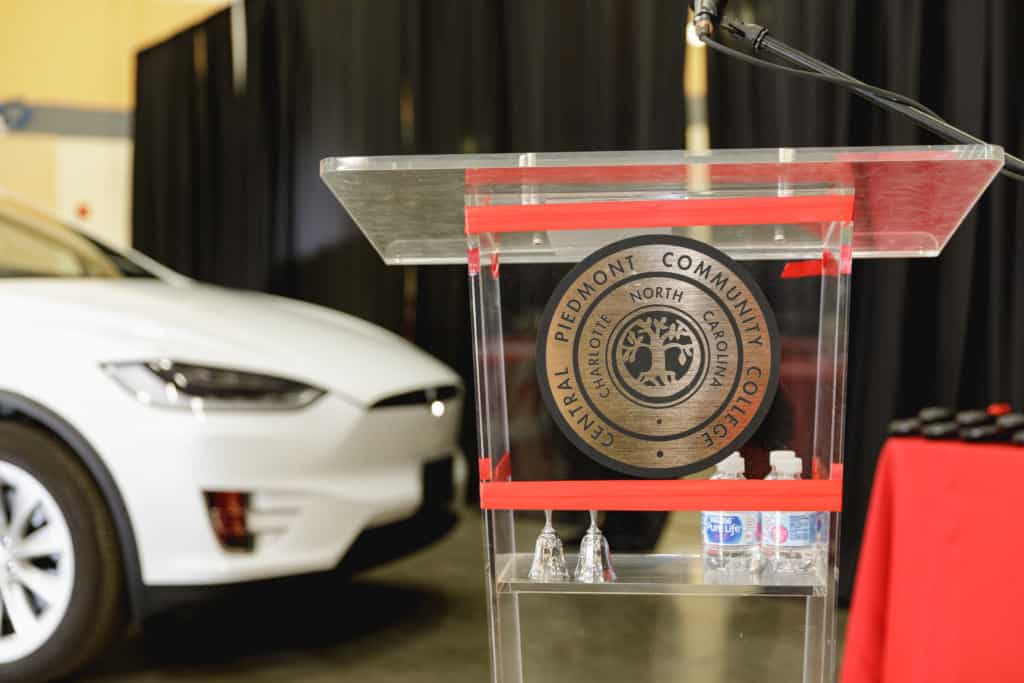
Conversations gathered steam last fall; by January, the 12-week Tesla START program was up and running.
“Class had started and the lifts weren’t even installed,” says Dave Favre, who directs CPCC’s transportation programming on the campus. We’re standing in the auto bay, where a few Tesla cars are hoisted on red lifts. Empty battery boxes from the cars’ chassis rest on the ground nearby. Unlike a typical auto shop, the space isn’t dirty—there’s no oil leaking from these cars or smudges from exhaust dust.
The Tesla degree pathway includes 12 to 18 months of coursework before coming to the garage. Then, during the course of the final semester, students completely disassemble and reassemble a Tesla vehicle. Typically, there are only 10 students in a cohort.
CPCC’s program was the first of its kind; Tesla quickly replicated it at community colleges in other states.
“This has been a hot topic,” Williams says. “We’ve been getting phone calls from all across the United States from people wanting to get into this program.”
The Tesla partnership is indicative of the way CPCC responds to industry needs.
Back on the Central Campus, Deitemeyer and Hogan have led me to an upstairs classroom designed to teach integrated systems technology and automation. All sorts of machines sit ready to facilitate learning about electrical, pneumatics, and hydraulics. Power and internet cords hang from the ceiling. Each piece of equipment is on wheels.
“All of this can be pushed to the side,” Deitemeyer says, should a new company need workers trained on a proprietary technology. Space in the Advanced Technology Center is intentionally flexible to respond to disruption in industry.
“You have to begin to think about facilities in that way,” she says. That’s why CPCC partnered with Tesla when it needed trained service technicians, and why it created space for biomedical equipment technology training when a local hospital system couldn’t find qualified workers.
“Whatever the next big thing is, we’ll be ready,” Deitemeyer says.
“Oh, we’ll be ready,” Hogan replies. “I don’t know what the next big thing is—but I know it will be attached to the skills we’re teaching.”
